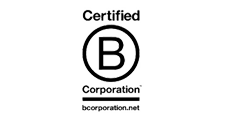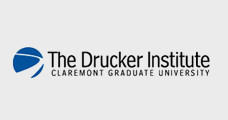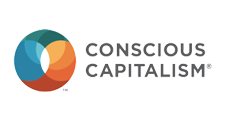The paper analyses the implementation of the Directive in the UK, Germany, France and Italy. The first part reviews the main trends, key differences and potential difficulties or unexpected consequences. The paper then explores in more detail key substantive elements of the Directive, and how these have been dealt with by each of the surveyed states. This section includes an overview of the scope and format, environmental, social and governance factors to report on, the information to be provided, the notion of materiality, the verification process, the basis of reporting and the consequences of non-compliance. The paper also presents a comparative table and comprehensive analysis of the domestic transpositions of each of the four countries under review.
New reporting rules require certain large EU companies to include in their management report a non-financial statement. The objective is to lay the foundation for a new model of corporate reporting that complements financial transparency with environmental and social information necessary to understand a company’s development, performance and position, as well as the impacts of its activities on society. This briefing identifies who will be affected and explains how to comply with the new reporting requirements, as well as discussing the implications of the Directive for organisations generally.
The report is the result of a two-year global roundtable series organised by Frank Bold and Cass Business School. It presents an emerging comprehensive approach to corporate governance that can assist corporations to develop a broad understanding of their purpose, as well as build a corporate strategy that will deliver long-term sustainable value, build organisational resilience, and sustain a strong social license.
This document presents the main conclusions of the global roundtable series which are also compiled in the 'Corporate Governance for a Changing World' report. This executive summary synthesises the results and recommendations reflected in the different sections of the report.
In Spring 2017, Cass Business School and Frank Bold hosted a series of discussion events on corporate governance aimed at charting the development of practice and policy towards a governance model fit for the challenges of the 21st century. The first event focused on three key topics: executive pay, fiduciary duties and stakeholder engagement. The discussants equally examined how recent calls for a change in various aspects of the corporate governance system are connected to a broader rethink of governance models.
The second event of the series hosted by Cass Business School and Frank Bold in Spring 2017 focused on how broad systemic risks from the environmental and social areas relate to corporate governance; how these medium and long-term risks can be assessed and reflected in business, investment, and insurance strategies; how regulators can best address these risks; and what relevant economic models are available to engage with these broad systemic risks.
Building on the results of the previous two seminars on directors’ duties and systemic risks, the third event of the series on corporate governance hosted by Cass Business School and Frank Bold in Spring 2017 focused on best practice and the desired development of reporting and accounting practice and policy. The participants engaged with corporate purpose, fiduciary duties, long-term and ESG risks and related these to new and evolving legislative requirements that aim to support long-term oriented governance.
In Spring 2017, Cass Business School and Frank Bold hosted a series of discussion events on corporate governance. The purpose of the series was to respond to the renewed interest among practitioners and policy-makers, including the UK Parliament, Government and the European Commission in modernising corporate governance. The series aimed to provide answers to the key questions raised in this debate. The organisers of the events have drawn the following conclusions from the speakers’ remarks and subsequent discussions with the public.
To foster the debate on how corporate governance can contribute to long-term sustainable value creation for corporations, shareholders, and society, Frank Bold and Cass Business School jointly organised the Creating Sustainable Companies Summit. The summit gathered leading thinkers, businesses, policymakers and civil society in Brussels on September 28, 2016. This summary presents a selected high-level reflections expressed by summit speakers and the outline of the summit agenda.
This publication provide civil society organisations and responsible businesses with an introduction to corporate governance, an overview of potential corporate governance models and potential avenues for future policy reform. Second edition. Not to be cited without prior permission. Comments welcome.
Frank Bold published this paper on the occasion of the Business and Human Rights conference organised in Amsterdam during the Dutch presidency of the EU in spring 2016. The document analyses the current situation of corporate governance in Europe, first by identifying the problems and then by suggesting several alternative to the current shareholder-centric approach to corporate governance and company law. Our proposals are aimed at making European companies and the European economy more socially and environmentally sustainable, as well as more innovative.
Frank Bold, together with the Modern Corporation Project (Cass Business School) launched a global roundtable series on corporate governance in 2014, with subsequent discussions held around the world. Roundtable events have been held at major business centres around the world, including London (Cass Business School, Sept 2014 and 2015), New York (NYU Stern School of Business, June 2015), Zurich (University of Zurich, October 2015), the Netherlands (Nyenrode Business School, February 2016), France (April 2016), Norway (University of Oslo, August 2016) and Brussels (September 2016). This document draws together all the executive summaries produced after each roundtable.
The roundtable, co-organised by Frank Bold and the SMART Project, University of Oslo Faculty of Law, brought together leading experts on governance from across Scandinavia to discuss corporate purpose and best practice how should corporate governance contribute to long-term sustainable value creation. The keynote speech was delivered by Idar Kreutzer (Finance Norway). In addition, Markus Kallifatides (Stockholm School of Economics) presented research on the corporate governance practice of the Nordic region, while Prof. Beate Sjåfjell (University of Oslo) introduced recent corporate governance developments and updates in the European Union.
Frank Bold organised a roundtable on corporate governance in Paris with Affectio Mutandi and Cass Business School. Building on previous events held in London, New York, Zurich, and Breukelen (the Netherlands), the discussion in Paris focused on corporate purpose and the creation of long-term sustainable value. Keynote speeches were given by Professor Alexis Constantin (Université de Versailles Saint-Quentin) and Thierry Philiponnat (Institut Friedland, Forum pour l’Investissement Responsable, French Financial Markets Regulator (l’autorité des marchés français, AMF) and formerly of Finance Watch).
Frank Bold in partnership with Nyenrode Business University and Cass Business School held a roundtable on February 2016 that focused on corporate purpose and the creation of long-term sustainable value. This document was submitted to the Monitoring Commission of the Dutch Corporate Governance Code in response to the public consultation on the code's revision. The roundtable event was part of the "Corporate Governance for a changing world" global roundtable series.
Frank Bold in partnership with the University of Zurich Centre for Human Rights Studies and the Institute for Business Ethics at University of St. Gallen held a roundtable on the purpose of the corporation and the future of corporate governance in Zurich on October 29, 2015. The roundtable was a part of the series organised by the Purpose of the Corporation Project with support from the Modern Corporation Project based at the City University London Cass Business School.
This event held in London on September 2015 was part of the "Corporate Governance for a changing world" global roundtable series. It was co-hosted by Frank Bold and Tomorrow’s Company at Cass Business School. The event focused on how to capture long-term value by integrating environmental, social and governance factors into investment and management decisions.
This event was part of the "Corporate Governance for a changing world" global roundtable series launched by The Purpose of the Corporation Project. The New York round held on June 2015 was co-hosted by NYU Stern and Law, Aspen Institute Business and Society Program, the Conference Board Governance Center and Frank Bold. The summary provides a comprehensive overview of the different sessions held throughout the day. By Paige Morrow and Jeroen Veldman.
The current state of the law on fiduciary duties is uncertain and it is unlikely that the courts will have adequate opportunities in the near future to clarify matters. It would therefore be extremely helpful to have clarification at the EU (and national) level about the scope of discretion available to pension fund trustees. Many investors are willing to consider taking account of ESG risks in their policies and decision-making but are currently held back by legal uncertainties and (ill-founded) fear of liability. By Andrew Johnston (University of Sheffield) and Paige Morrow (Frank Bold). April 2016.
Frank Bold, with the support of ACCA (the Association of Chartered Certified Accountants), organised a roundtable on responsible investment and reporting on March 2016. The event was particularly relevant in view of the two current consultations published by the European Commission on non-financial reporting and long-term and sustainable investment.
How can corporate governance make big businesses financially, environmentally and socially sustainable? With this question in mind, the Purpose of the Corporation Project partnered with CORE and Cass Business School for a roundtable event.
In April 2014, the European Commission proposed to amend the Shareholder Rights Directive with the aim of improving corporate governance and promoting long-term shareholder engagement. This briefing outlines several key provisions in the Directive. We support the objectives of the Directive and believe that it will strengthen corporate governance of EU enterprises. The importance of good corporate governance extends beyond the narrow interests of either short- or long- term shareholders in an individual company.
This concept note outlines the objectives that we pursue and the ideas behind the Purpose of the Corporation Project (an initiative of Frank Bold).
The statements on Company Law, Economics, Accounting, Management and Politics seek to foster the development of a wide-ranging debate on the nature and consequences of contemporary corporate governance, which has put radical shareholder primacy at the centre of corporate attention. Prepared and endorsed by more than 250 high-level experts versed in a variety of legal systems, the statements provide a cross-jurisdictional and cross-disciplinary consensus for the development of a new vision on corporate governance. The work has been coordinated by Dr Jeroen Veldman, Senior Research Fellow at Cass Business School to support the Purpose Corporation Project.
In its first major event the Purpose of the Corporation Project brought together in excess of 120 thought leaders. The event, hosted by Richard Howitt MEP, was a collaboration between Frank Bold and the Modern Corporation Project at Cardiff Business School.















